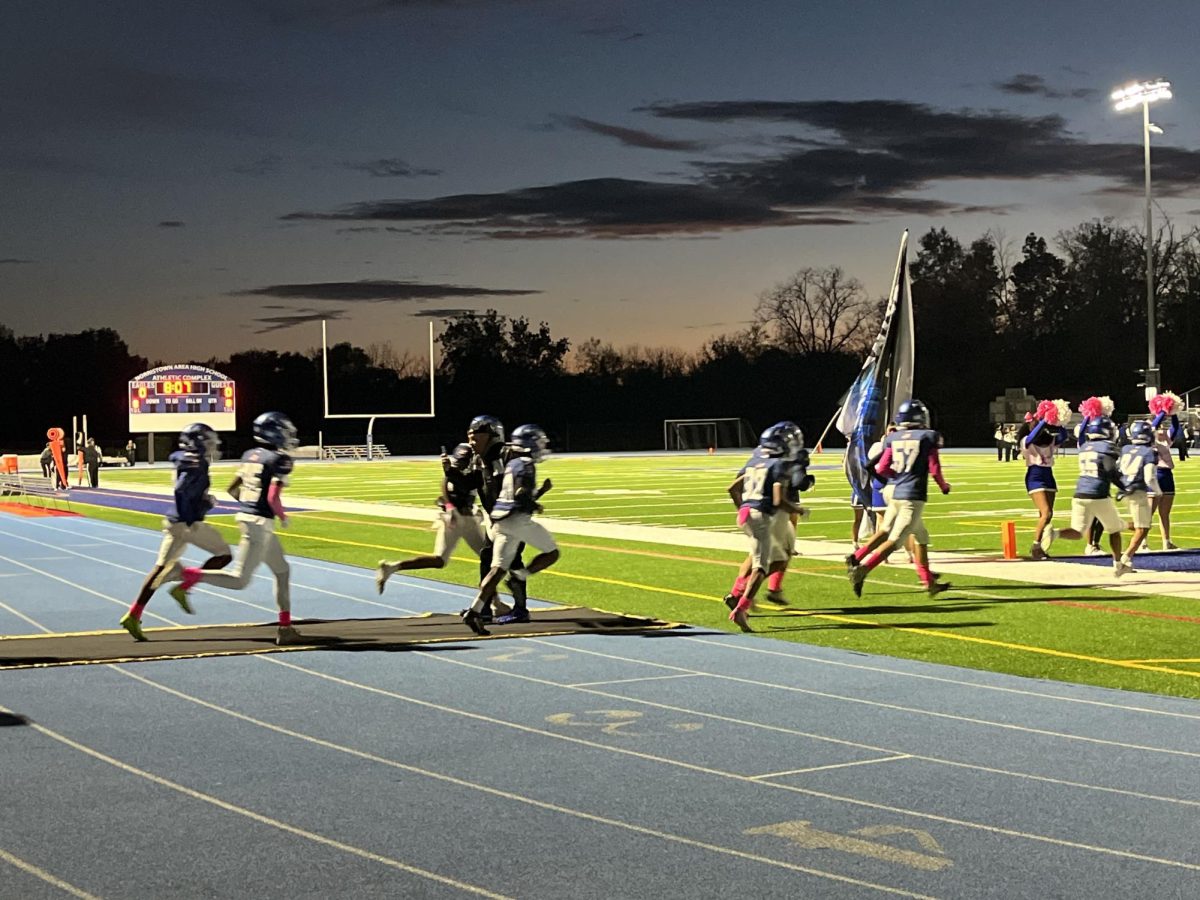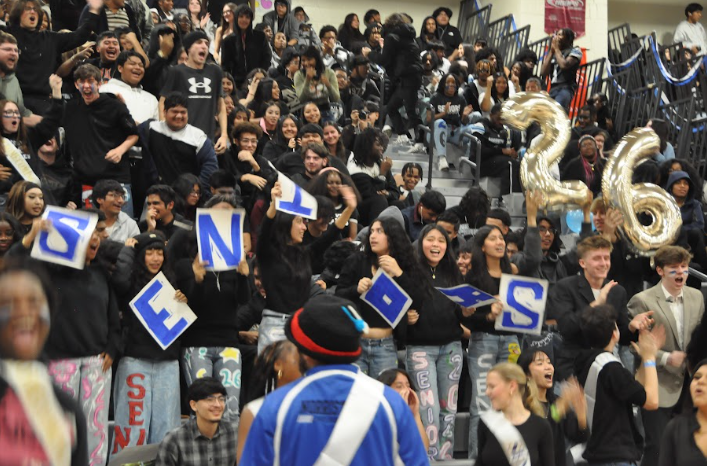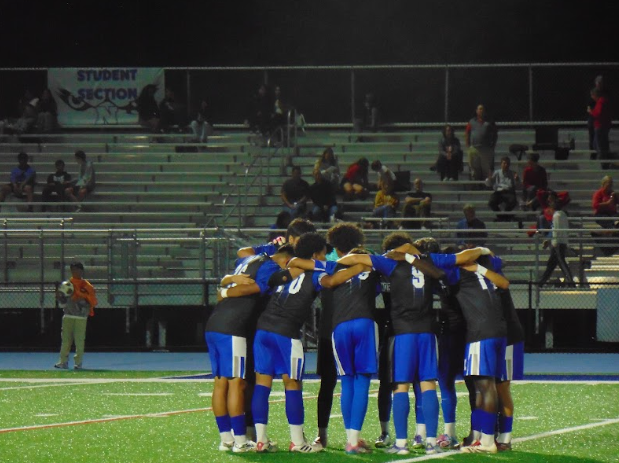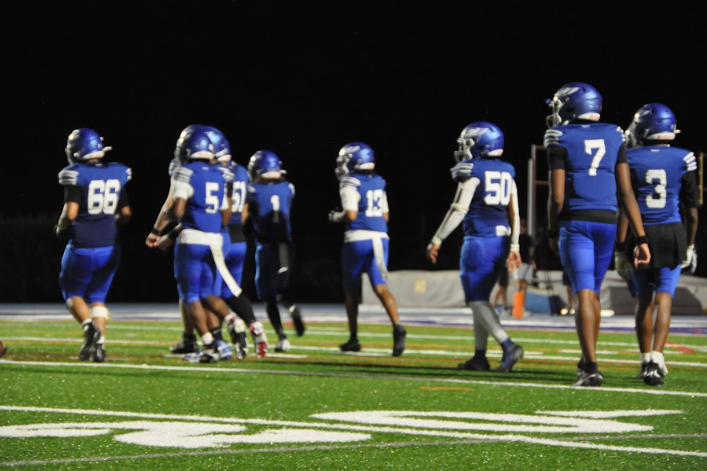The term ‘senioritis’ or ‘senior slump’ has been used since the early 1900s to describe the feeling of students who are burnt out – or overwhelmed and become ‘lazy’, skip or come to school late more than they come on time, have a lack of motivation, and put off assignments as much as possible. Within recent years, there has been a change in the fact that many seniors are fearing their future lives outside of school.
Students, teachers, and even parents are all speaking of the troubles resulting from this problem; higher levels of anxieties, depression, fading in and out of reality, not being able to focus on a topic at hand, and having ‘crash outs’ on a daily basis.
While having fears and anxiety about the future is normal, especially for graduating seniors, it should not be coming to the point that young adults are having bouts of depression and not able to fully be themselves at any given moment.
Money wise, jobs are not keeping up with the economic state of the United States, causing many dream jobs to be thrown aside as it becomes ‘unrealistic’ to live off of. Jobs simply don’t pay enough to work off student loans being used for college and university costs – as those have jumped dramatically over the past decades. People who are choosing to not go to college are unable to afford a simple lifestyle of renting a small apartment without a roommate, and many times still struggle to make ends meet if they do have a roommate.
Finding a job after graduation, college or high school, is also becoming harder and harder, even for jobs that don’t require a college degree. As elderly people take longer and longer to retire, it leaves less room for the new generation to take over. The reason so many elderly are still working is also due to financial issues – as well as better medical resources to keep youth-like mobility to continue for longer.
Many students also feel as school itself is taking too much time out of their days. By the time 12th grade second semester comes, students normally have a much better idea as to what they want to do with the rest of their life and certain classes are felt to be ‘not needed’ or ‘busy classes’ for what a student’s goal in life may be.
Unfortunately, many of these classes are normally graduation requirements from the state. Instead of the classes chosen to be required classes, here are some that can be in replacement.
Sex-ED: Requirement
It is important to note that this class will be a second semester class, as most seniors will be 18 or nearing it and you do not want to beat around the bush.
While teaching this class, no teacher or administrator should be afraid to say something or not say something. While you are still speaking to students, these students are closer to adulthood and should be taught with this in mind. This class should be taught like any other adult-class and students should be treated as young adults who will be experiencing these things in ways that high school relationships do not bring to the table.
These students will be young adults and the sex-ed you learn in freshman year should not be repeated to these seniors who are or will be adults in the real world in only a few months.
Sex, human emotion, and self awareness are key points I feel should be the center of this class.
When you enter the adult world, you start looking for people who you actually want to spend a life with – not just in the romantic or sexual sense.
Home-EC: Requirement
The amount of young adults who do not know how to do a load of laundry is too large. Today, there are many younger adults on social media that share that they do not know how to cook or bake anything other than toast and cereal.
Learning how to do a simple stitch in clothing is a life skill not many families are passing down due to the culture in America that you can just buy new clothes.
This course should be a course that has homework – but not in the traditional way of bringing home papers. The homework should be literal home work that a student should be able to do at home to test their skills learned in class.
An example of this would be to task students on washing their own clothing with both their family washer/dryer and understanding how to use the laundromat as you never know when you may need to use a laundromat in your life. Students will not need to physically go to the laundromat, only have the teacher go over the topic.
Another topic in this home-ec class should be a cooking class that expands on more than baked goods and basic foods. It should help student utilities recipes and how to expand or lessen a recipe on what they need portion wise.
There should be the skill of knowing how to make all three core meals and how to make them healthy and without hurting yourself. Home work for this should be the student being able to make their own meals with an oven for themselves without fear and being able to make this food without worry of messing up.
Media Literacy: Option
Change out the idea of a fourth year of straight ELA and lean towards more of a media literacy class. I am not saying to completely abandon ELA, as keeping those skills sharp is important, but change the course itself to shape it to more than just reading books and writing a book report.
Instead of simply books, add in news articles and have students understand the difference between fake news, the story being told, the side of the story, how the news can be shifted to make your opinions change.
This media literacy can expand from not just news outlets, but also to movies and tv shows. Movies and tv shows can shape a person’s mind, more strongly at a younger age.
This course can analyze these two and explain on the topics of what is being shown and why someone may, in real life, tend to either agree or disagree with a similar topic at hand because of these media.
Financial Literacy: Option
To bring back the fact that many students feel uncomfortable and not fully ready for the financial worries of today, welcome this class to seniors.
However, teachers should not make it fully about math or just how to save your money. Instead, topics such as how banks work, how to get an account within a bank, how to choose what bank works for different types of people depending on jobs, credit-unions vs normal banks vs community banks, different types of savings and checking accounts, credit scores, and stock market.
Working with students to fully understand how to manage their money outside of just saving it for bigger purchases that classes taught to middle school students and freshmen are taught. Help these seniors understand how to also spend their money in a healthy and controlled way.
Understand that most of the students have had or do have a job currently and already know the basics involving how to correctly put money in a basic saving account and checking account.
(U.S.) Government Class: Option
This class should not be 100% history.
While you obviously can not teach government with a bit of back story, this class should not spend ⅓ of the class time going over American history in politics. By senior year, students have re-learned American history in government since their elementary school years.
A little refresher is most likely needed, especially as seniors actually care about government now as they will be voting in the next election(s), but do not spend too much time on the founding fathers again.
Instead of focusing on the founding fathers, speak of how the three branches of government have shifted and changed from their beginning.
Once this refresher is over, allow students to bring their understanding outside of simply federal government and state level government.
At the end of this course, seniors should have an understanding of political parties and how they affect their every-day life outside of politics, be able to explain to others how different levels of government work, and make voting decisions that work best for them from their skills learned.
Only two of the five are recommended to be required due to the fact that some senior may want to work out time in their schedules to leave school early for work, go to a class that could help them in college class, or even just so it does not make seniors feel pressured to take five classes at the end of the year.
It is important to note that these classes should be either a pass or fail – tests should not be points on or off your grade. The idea of ‘grades’ for these classes should not cross one’s mind. These classes should be an easy pass or fail in terms you simply have to show up and give these classes a half decent try.
This will wrap up a student’s grade book without stress or worry that a college – if that is where this young adult chooses to go – decided they want to pull back their acceptance. It also gives a fine polish off of their records for their final grades as a high school student.
Students who decide to go into the workforce or take a gap year or even travel will be able to use these skills in real life immediately after graduation. Their stress on finances will ease, their home edict will cause no problems, and some may even find a job within these skills they had learned.














